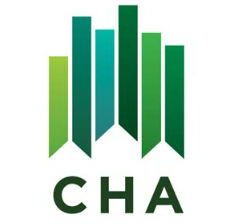The USA PATRIOT Act, passed shortly after the September 11, 2001, terrorist attacks, significantly expanded the U.S. government’s surveillance and investigative powers to enhance national security. While its proponents argue it is essential for combating terrorism, critics raise serious concerns about how the Act infringes upon privacy rights. Here are the key ways in which the Patriot Act has been criticized for invading privacy:
1. Broad Surveillance Powers
The Patriot Act grants government agencies extensive surveillance capabilities, often at the expense of individual privacy:
- Section 215 (“Library Records Provision”): Allows the FBI to request access to “any tangible things,” such as business records, library checkouts, internet browsing histories, and even medical records, without showing probable cause. The targeted individual might never know they were under surveillance.
- Mass Data Collection: Under this provision, programs like the NSA’s bulk metadata collection of phone records were justified, which critics argue amounts to indiscriminate surveillance of millions of innocent people.
2. Reduced Judicial Oversight
- The Act allows law enforcement agencies to conduct surveillance with significantly reduced oversight from courts. For instance, the Foreign Intelligence Surveillance Act (FISA) court operates largely in secrecy, making it difficult for the public to know the extent of government surveillance.
- Delayed Notification of Searches (“Sneak and Peek”): Section 213 authorizes delayed-notice search warrants, allowing law enforcement to search a property and notify the owner only later. Critics argue this undermines the Fourth Amendment, which protects against unreasonable searches and seizures.
3. Expanded Use of National Security Letters (NSLs)
- NSLs are subpoenas issued without judicial approval, allowing the government to demand records or data from businesses (e.g., phone companies, ISPs, or banks) while prohibiting the recipient from disclosing the request.
- The secrecy provisions of NSLs mean individuals and organizations cannot challenge or even reveal that their data has been accessed, creating a lack of accountability and transparency.
4. Surveillance of Internet Activity
- Section 216 allows the government to intercept internet communications and gather “dialing, routing, addressing, or signaling” information. This includes emails and web browsing activity, potentially infringing on the privacy of individuals’ online behavior.
- The expansion of “pen registers” and “trap and trace” devices to cover internet communications has been criticized for sweeping up data on law-abiding citizens.
5. Profiling and Targeting of Specific Groups
- Critics argue that the Patriot Act has led to disproportionate surveillance and targeting of specific communities, particularly Muslims, immigrants and activists. This profiling has raised concerns about discrimination and the chilling of free speech and assembly.
6. Erosion of Fourth Amendment Protections
The Patriot Act’s broad definitions of terrorism and national security threats have been used to justify surveillance activities that would have previously required stricter legal standards. This erosion of probable cause requirements and warrant protections poses a direct challenge to Fourth Amendment rights.
7. Secrecy and Lack of Accountability
- Many surveillance programs initiated under the Patriot Act operate in secret, making it difficult for the public or even Congress to hold agencies accountable.
- Whistleblowers like Edward Snowden have revealed how provisions of the Act were used to justify extensive and often overreaching surveillance programs.
Arguments in Defense of the Patriot Act
While critics highlight privacy concerns, proponents of the Patriot Act argue that:
- It has been instrumental in preventing terrorist attacks.
- Surveillance powers granted under the Act are subject to oversight by the courts, Congress, and internal audits.
However, the balance between security and privacy remains a contentious issue.
Conclusion
The Patriot Act has transformed the landscape of surveillance and privacy in the U.S., raising critical debates about how to balance national security with individual freedoms. Critics argue that the Act’s expansive powers invade privacy, erode constitutional protections, and lack transparency. Reforms, such as the USA FREEDOM Act of 2015, have sought to address some concerns, but debates over the trade-offs between security and privacy continue to shape policy discussions.
![]()





